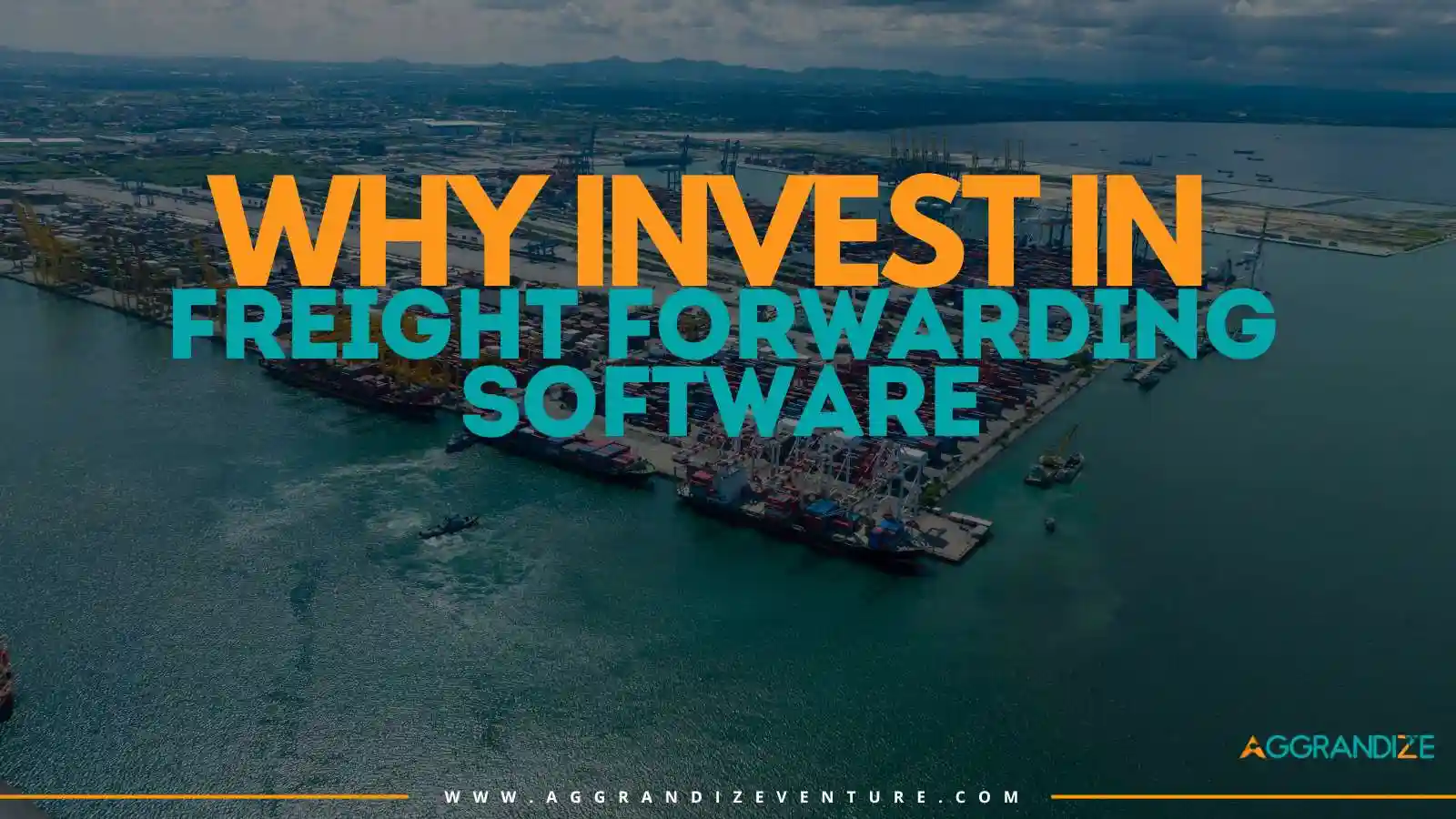Freight Forwarding
Why Invest in Freight Forwarding Software Now
Date: 12-08-2024
The logistics and freight forwarding sector is changing a lot, influenced by globalization, technological development, and changing consumer demands. Are these changes proving a challenge for you? Is your company dealing with high costs, non-compliance, or inefficiency? The way out is through the adoption of freight forwarding software which can transform your operations and put you at the top of the competition. However, just what is freight forwarding software and what is its significance in today's world? Let's get into the details.
1.Cloud-based: Available for use anywhere with benefits of flexibility and integration.
2. On-premises: The installed program local to company servers gives you more control and flexibility.
Key Features1. Shipment Trackingt: Get live updates on the whereabouts of your cargo from start to end.
2. Documentation Management: : The efficient procedure includes the processing of all important shipping documents.
3. Rate Management: Correct way of processing freight rates and quotes.
4. Customs Compliance: Making sure that international trade regulations are followed.
5. Reporting and Analytics: Thorough descriptions and performance metrics to facilitate reasoning out are the outputs.
Market Overview
The freight forwarding sector across the globe is riding on a new wave of success manifested through a rising wave of overseas transactions. A glance at the data reveals that the market will soon reach an unprecedented peak, hence the demand for high-tech solutions will also be increased.
ChallengesFreight forwarders today face numerous challenges, such as:
1. Increasing Customer Demands: Clients are foaming at the mouth to get services that are quicker and more reliable.
2. Regulatory Changes: Armed with rapidly changing trade regulations, businesses are bound to regularly update themselves.
3. Supply Chain Disruptions: Unforeseen events such as the COVID-19 pandemic have brought to light the weaknesses in global supply chains.
Technology is changing the game in the industry, with AI, blockchain, and IoT becoming key players necessary for optimal use of efficiency and transparency.
Operational Efficiency: Automating tasks with freight forwarding software is one way to cut down on manual errors and increase the speed of the operations. This is the case because a company that uses freight forwarding software in its daily operations will experience a significant improvement in operational efficiency.
Cost Savings: Automated functions allow less workforce and fewer blunders, thus, cost savings. It is worth mentioning that a firm that employs freight forwarding software saves on administrative expenses and, at the same time, is less likely to be involved in expensive compliance mistakes.
Improved Customer Service: Improved tracking and communication capabilities mean that customers are always informed about their shipments which has a positive impact on the satisfaction rates.
Scalability: With the expansion of your business, freight forwarding software can also scale with you adapting to the increased volumes and more complex operations.
Regulatory Compliance: Staying compliant with international trade rules is of utmost importance. Freight forwarding software is the one that guarantees that the customs and regulatory requirements are adhered to.
Assessing Needs: Identify your specific business needs and objectives to choose the right software that aligns with your goals.
Budget: Outline your spending target and think of the possible ROI. The right software can be the reason for the massive cutdown of costs and gains in the efficiency of the processes.
Integration: Ensure the software is compatible with your existing systems and other software tools.
User-friendliness: The software should be easy to understand and to operate for the employees, so no time is needed for training and the productivity is high.
Vendor Support: Vendors with high-quality training and customer support should be sought for a successful implementation and later assistance.
AI and Machine Learning: AI and machine learning are new technologies that are reshaping the freight forwarding sector through route optimization, forecasting of delivery disruptions, and better decision making.
Blockchain: Blockchain technology guarantees secure and transparent transactions thus, fraud is curtailed and the traceability is improved.
IoT: The Internet of Things (IoT) improves shipment tracking and monitoring by delivering real-time information about goods' condition and location.
Predictive Analytics: The use of data for the purpose of forecasting trends and planning more effectively can be helpful in the allocation of resources and to improve the level of service.
Investing in freight forwarding software is no longer optional but essential. The benefits are
invaluable: from cost savings and real-time delivery to enhanced compliance and scalability. In
an ever-evolving technological landscape, staying ahead with advanced solutions is crucial.
Ready to revolutionize your freight forwarding operations? Choose ZEALIT freight forwarding
software to stay ahead of the competition and adapt seamlessly to industry changes.